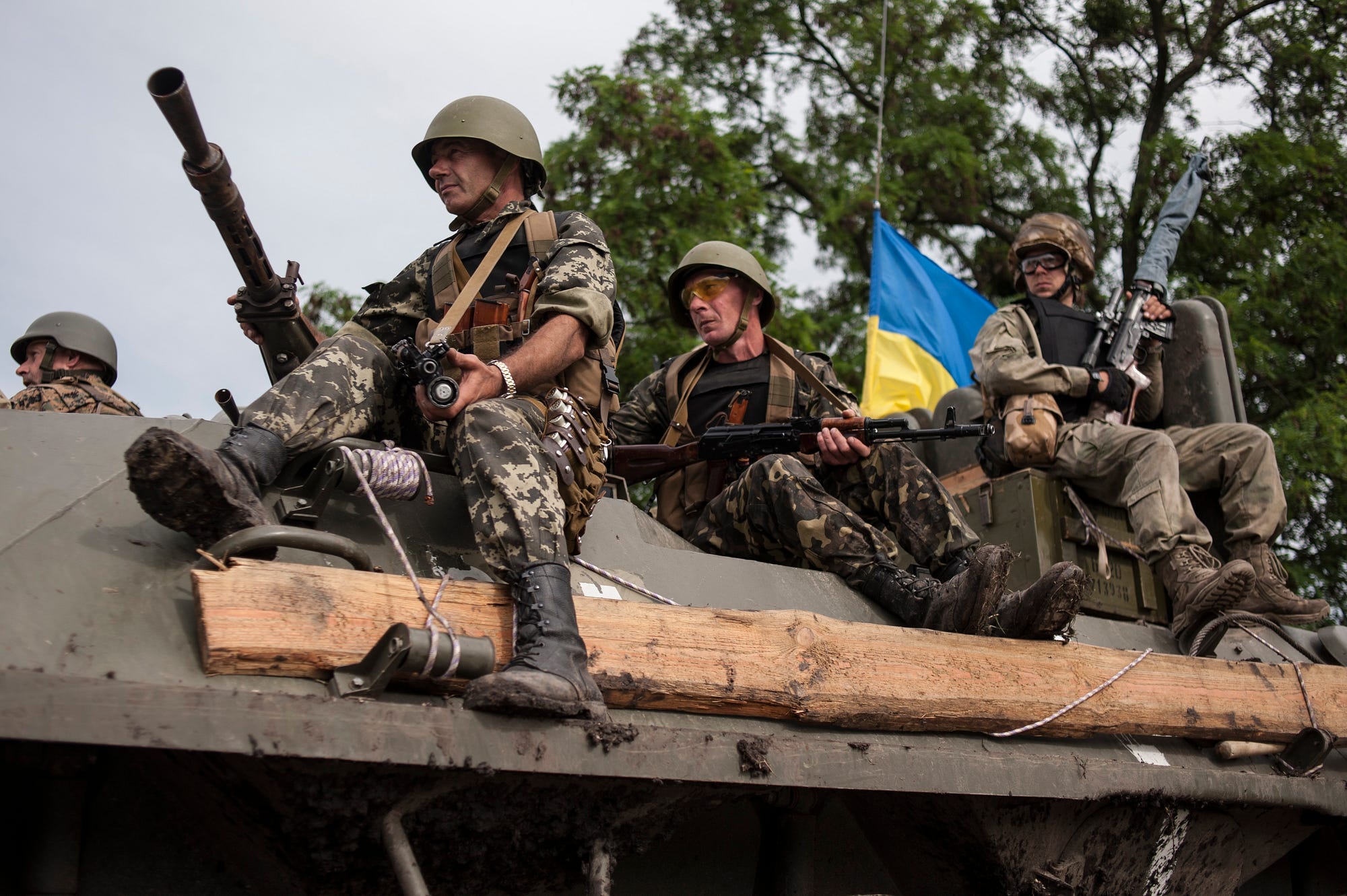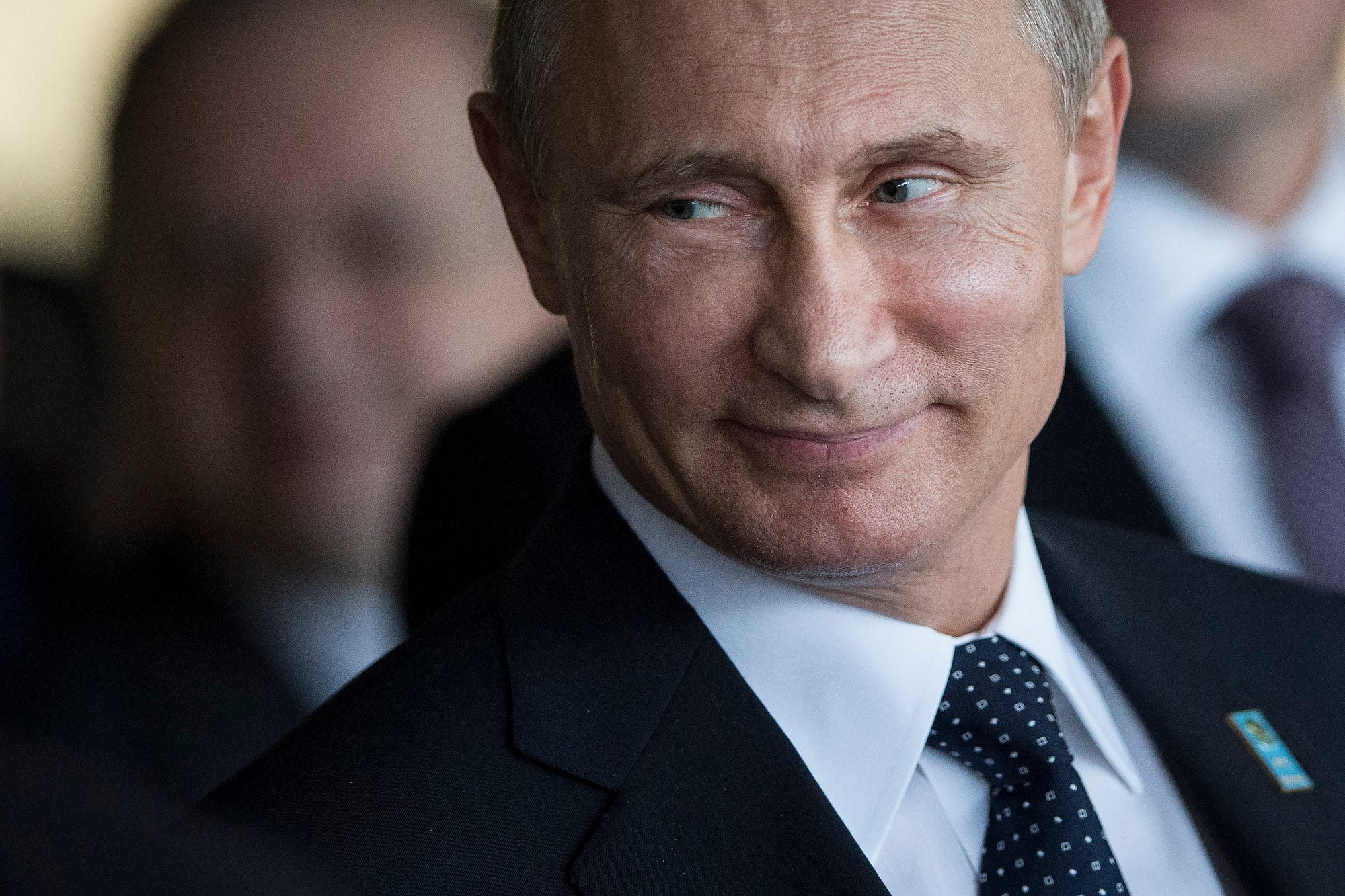Paul Richard Huard
December 5, 2014
Vladimir Putin’s Losing Streak: Russians are losing enthusiasm for the Ukraine war
At first glance, Russian president Vladimir Putin seems to have defied all the odds.
Russia is poised to mount a winter offensive against a defiant Ukraine that still struggles to supply its army, treat its wounded and repel a world military power. In November, international monitors sighted more convoys of Russian vehicles carrying soldiers, as well as unmarked T-72 and T-64 tanks, crossing from Russia into eastern Ukraine near Donetsk.
An October poll indicated the Russian president has an 88-percent approval rating. Politically, he seems unassailable.
That could be changing. As Ukraine grows more defiant and Russia’s economy suffers, more and more Russians are losing interest in Putin’s war.
At the moment, there is no apparent political rival with the ability to challenge Putin’s policies or his rule. To further consolidate his power, Putin has jailed dissenting journalists and opposition politicians.
The United States and the NATO alliance don’t want a direct confrontation with Russia over Ukraine, instead relying on sanctions and rhetoric that mostly have done little to trouble Putin or his supporters among Russia’s elite.
But now increasing economic doldrums—owing to collapsing oil prices and a devalued ruble—plus fervent Ukrainian nationalism and a Ukrainian army that prevails despite its immense problems, indicate Putin’s future might not be as rosy as his recent years.
There have even been a few scattered near-mutinies among Russian troops resisting deployment to eastern Ukraine.
“Although Putin is in a strong position now, he’s replaceable,” Graeme Auton, professor of political science at the University of Redlands and an expert on Russian energy policy, told War Is Boring. “I think he is in an increasingly tenuous position, and he is facing what is for him an unfortunate confluence of events.”
Consider the recent drop in oil prices. As Putin continues the invasion of Ukraine, OPEC dealt an economic body-blow to a nation where oil revenues comprise nearly 50 percent of the Russian budget annually—a loss of at least $100 billion according to some estimates.
In addition, the ruble continues to plummet in value against both the dollar and the euro. Against the dollar, the ruble has lost nearly 30 percent of its value during 2014 alone.
Above—Vladimir Putin. AP photo. At top—an anti-Putin protest in St. Petersburg in 2012. The sign in Russian on the left reads, “Not another term in succession.” Photo via Wikipedia
To make matters worse, Russian banks are shut out of international capital markets, causing the biggest state-run banks to face major profit losses. That’s perhaps the only sanction that has worked. Now Russian banks are turning to a cash-strapped Russian government for financial relief.
Owing to these factors, Russia is entering a major recession that will make life harder not only for ordinary Russians, but also spread the misery among Putin’s supporters in the Russian business world.
“The Russian people have supported Putin since 2000 not simply because of nationalism but because under Putin they have been better off,” said Auton, who is also a former NATO research fellow.
“It is a kind of unwritten contract between Putin and the Russian people, and he is breaking that unwritten contract,” Auton added. “No matter what he does, such as step in and attempt to rescue the ruble, the Russian economy is still going down.”
Putin’s ongoing assault on Ukraine is a core component of his political surge. Ironically, Ukraine and the Russian Federation were steadfast allies when Viktor Yanukovych was Ukraine’s president.
Putin negotiated several financial aid deals for Ukraine with Yanukovych, including the purchase of more than $15 billion of Kiev’s government bonds and a one-third reduction in the price of natural gas exports to Ukraine.
But sweetheart deals like these only convinced a majority of the Ukrainian people that Yanukovych was Putin’s puppet—and that Moscow was pulling the strings. In late 2013, Yanukovych decided to shelve a pact with the European Union in favor of even closer economic and political ties with Russia, which prompted mass protests against his government.
“Thanks to Vladimir Putin, Ukrainians have discovered an identity, a sense of solidarity and sense of patriotism that they never had in the last 25 years, or arguably have never had at all in the last number of decades,” Alexander Motyl, professor of political science at Rutgers University, said during a recent online broadcast of NATO Review.
“People are finally willing to make sacrifices for the country. That was never the case in the past.”
Russia’s military aggression—the spring annexation of Crimea and subsequent invasion of eastern Ukraine— intensified the already potent resurgence of Ukrainian nationalism.
Instead of a broken and pliable government, Putin now faces a new government in Kiev that is unified and well-established in its opposition to Russia. Ukrainian radicals with pro-Moscow sentiments were crushed in recent elections.

The Ukrainian military has transformed itself into a reasonably competent fighting force. It’s far from perfect—a lack of supplies, corruption among high-ranking officers and government financial woes are ongoing problems. But despite long odds, Kiev’s army has dug in and held pro-Kremlin separatists and their Russian allies at bay in eastern Ukraine.
What’s more, ordinary Ukrainians are volunteering for military service in what the county calls ATO—“anti-terrorist operations”—against Russian military might. Many are openly proud of their military service.
“We should be prepared to defend ourselves. We can beat Putin’s army in Ukraine,” Pavlo Zhebrivskiy, a Ukrainian politician and volunteer in the nation’s military, said in a written statement posted on-line by Euromaidan PR, a pro-Ukrainian organization that provides media information about the Ukrainian conflict to journalists.
“Our army is not what it was even one or two months ago,” Zhebrivskiy wrote. “The Ukrainian army has more combat experience and is more battle-ready to defend Ukraine together with the people of Ukraine. It will not be an easy ride for the Russian army in Ukraine if Russians and Russian-backed separatists start an offensive.”
Even if Putin faces political risks from these factors, some might ask who or what an autocrat has to fear.
After all, Putin rules a post-Soviet Russia that no longer has a Supreme Soviet or Communist Party Soviet Union to enforce discipline, question authority or threaten to replace him.
“In Soviet times, there were clear distinctions between the policymakers and the security apparatus which enforced policy,” James Miller, managing editor of The Interpreter magazine, told War Is Boring. “Putin is former KGB and is turning his government into a cult of personality. The military-security apparatus is in charge of both making and enforcing policy. This is a serious threat.”
Miller said Putin wants to create a self-sufficient Russia that can project its military power both at home and abroad.
“Putin would like to send a message to Eastern Europe—join us or suffer the consequences,” Miller added. “Putin would like to send a message to revolutionaries in dictatorships, both in countries who are his allies—Syria, Lebanon and Iran—and also to his own territories that any revolution will be crushed and will only bring disaster.”
“Ultimately, Putin would like to do all of these things while convincing the Russian people that the West poses an existential threat which only he can counter.”
Instead, some members of the Russian military are showing signs of resistance against Putin’s costly Ukraine adventure.
Miller said stories are appearing in what remains of the independent Russian press and on social media, indicating some soldiers are refusing orders to fight in Ukraine.
On Nov. 14, the independent Russian-language publication New Region reported that 250 Russian Army conscripts in Rostov refused to resign from the army and then sign the paperwork that would make them contract soldiers with orders for Donbass.
When the soldiers faced threats of losing their military benefits because of their refusal, parents of some of the conscripts took the soldiers’ case all the way to the Russian ministry of defense—and won.
Some Russian soldiers with orders for the Ukraine are even wounding themselves during training to avoid deployment, Miller said.
Contract soldiers as well as special operators such as Spetsnaz and GRU—the Russian army intelligence directorate—are important parts of Moscow’smaskirovka strategy, which counts on secrecy, denial and deception. The Kremlin steadfastly denies that any Russian soldiers are in eastern Ukraine at Moscow’s behest.
But Russia’s secret soldiers could be losing enthusiasm for the Ukraine war—an attitude at odds with the propaganda coming out of Moscow.

No comments:
Post a Comment